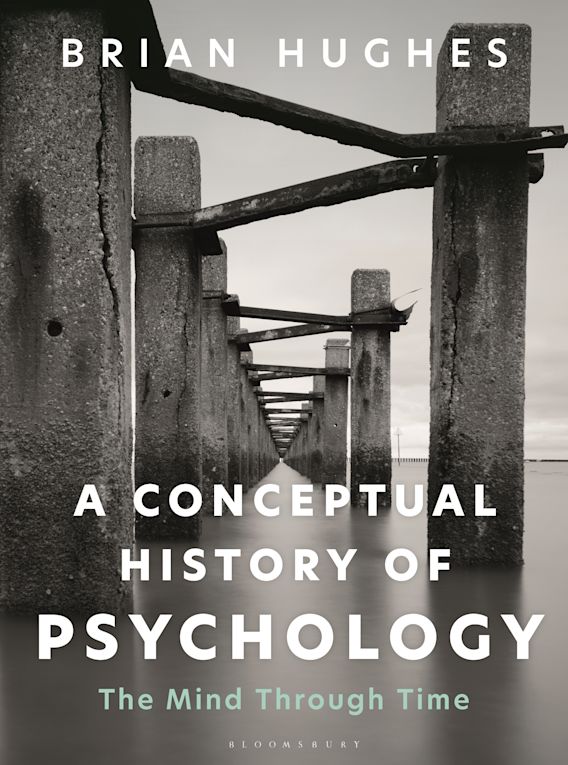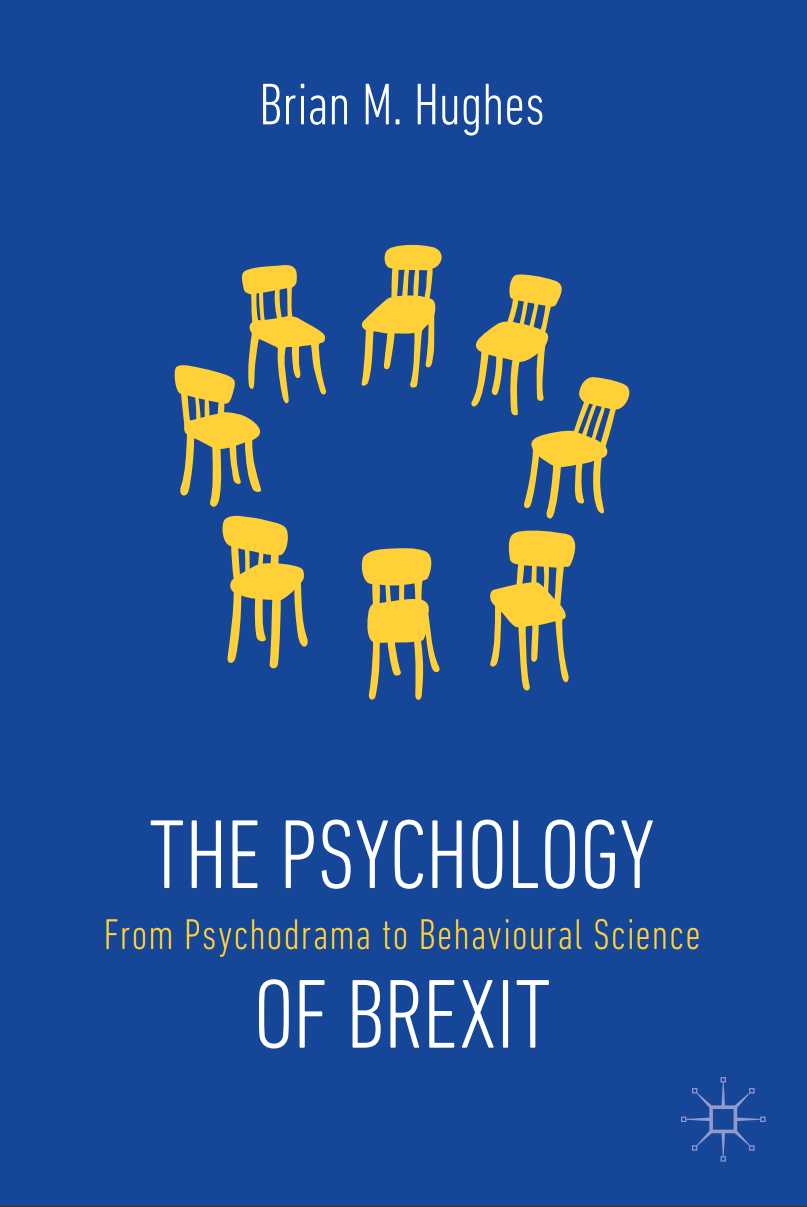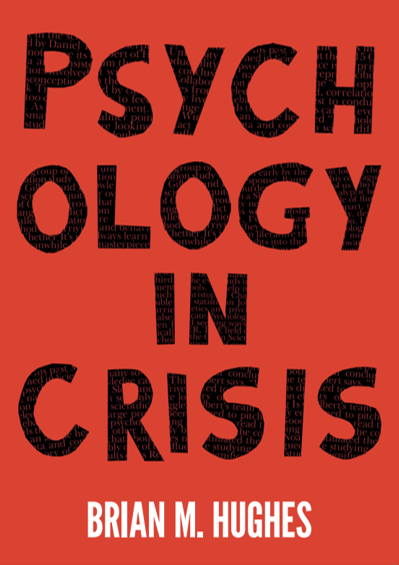A Conceptual History of Psychology:
The Mind Through Time

What is modern psychology and how did it get here? How and why did psychology come to be the world’s most popular science?
A Conceptual History of Psychology charts the development of psychology from its foundations in ancient philosophy to the dynamic scientific field it is today. Emphasizing psychology’s diverse global heritage, the book explains how, across centuries, human beings came to use reason, empiricism, and science to explore each other’s thoughts, feelings, and behaviours.
The book skilfully interweaves conceptual and historical issues to illustrate the contemporary relevance of history to the discipline. It shows how changing historical and cultural contexts have shaped the way in which modern psychology conceptualizes individuals, brains, personality, gender, cognition, consciousness, health, childhood, and relationships.
“In this tour-de-force, Brian Hughes provides a comprehensive history of psychology… a must-read for anyone interested in gaining a broader perspective on psychology and broader ideas about human nature”
Hans Pols, University of Sydney, Australia
“Hughes has set the bar for a textbook on conceptual, historical and philosophical issues in psychology. It stands apart….”
Gareth Hall, Aberystwyth University, UK
“Finally, we have a comprehensive and detail-oriented introduction to the history of psychology which brings in a range of non-Western perspectives to challenge all the given tenets from 20th century Western psychology.”
Sven Hroar Klempe, Norwegian University of Technology and Science, Norway
“Unlike many books which detail the history of psychology, Brian Hughes’ clear and engaging writing style, and use of examples from popular culture, literature and modern politics make this an entertaining and insightful text.”
Michael Smith, Associate Professor of Psychology, Northumbria University, UK
The Psychology of Brexit

The Psychology of Brexit examines the psychological causes, catalysts, and consequences of Brexit. Unlike most cultural upheavals, Brexit is not the result of accidental tragedy or spontaneous economic turmoil. Rather, it exists because people decided to make it exist. It is a product of human psychology – shaped in critical ways by people’s perceptions, preferences, choices, self-images, attitudes, ideas, assumptions, group relations, and reasoned (or ill-reasoned) conclusions.
This book discusses how reasoning biases and illusions of control propel – and pollute – the perspective of both Leavers and Remainers. It shows how social stereotypes and motivated irrationality help otherwise groundless beliefs thrive in everyday culture, leading to group polarisation and echo-chamber reasoning. It reveals the way cultural biases like sexism influence how Brexit politicians are portrayed and perceived. And it explores the psychological impact of Brexit – its effect on social attitudes, future thinking, and collective and individual mental health.
In this compelling new book, psychologist Brian Hughes examines what scientific psychology reveals about the dynamics of Brexit, what Brexit teaches us about ourselves, and what we can do to deal with its short-term impact and long-term fallout.
“Hughes’s timely, insightful and brave analysis of the psychology of politics of Brexit is a lesson for all.”
Krys Kaniasty, Distinguished Professor of Psychology, Indiana University of Pennsylvania, USA, and Polish Academy of Sciences, Poland
“In this excellent and clearly written volume, Hughes has illustrated the integral connection between political decisions and psychological well-being and as such this book is in the vanguard of the area.”
Esther Greenglass, Professor of Psychology, York University, Toronto, Canada
“As a psychologist and former president of the UK’s professional body for psychology, I have seen Brexit concerns in both the UK and Europe at first hand. But depth of psychological analysis has up to now been in short supply. Brian Hughes fills this gap with a penetrating analysis of the impact on citizens and communities, written with energy and style. One that I think will earn an enduring place on the Brexit bookshelf.”
Nicola Gale, Department of Psychology City, University of London and former President of the British Psychological Society
“Hughes’s accessible and absorbing style makes this a must-read for anyone interested in human behaviour and decision-making.”
Michael Smith, Associate Professor of Psychology, Northumbria University, UK
Psychology in Crisis

Throughout the history of psychology, attempts to measure human behaviour have given rise to an underappreciated margin of error. Today, as psychology experiences increasing difficulty reproducing the results of its own studies, such error leaves an indelible question: Is psychology actually a field of irreproducible science?
In this thought-provoking new book, Brian Hughes seeks to answer this very question. In his incisive examination of the pitfalls that determine ‘good’ or ‘bad’ psychological science, Hughes shows readers how to critique psychology research, enhance its validity and reliability, and understand the strengths and weaknesses of the way psychology is produced, published, and promulgated in the twenty-first century.
“Psychology in Crisis is an unflinching tour of the challenges of doing psychological science well. Brian Hughes describes six crises facing psychology that could make one think that all is lost. But it is not. At their core, the crises are illustrations of just how hard it is to study human behavior and, simultaneously, why it is worth doing. Hughes closes with a path toward a science that is robust, transparent, and self-skeptical to help accelerate discovery and ensure that psychology meets its potential as a scientific enterprise..”
Brian Nosek, Professor in psychology at the University of Virginia and Executive Director for the Center for Open Science
Rethinking Psychology

Psychology is one of the most popular subjects in universities across the world. Psychology is a modern empirical science, premised on the use of scientific methods to resolve uncertainties in our understanding of the human condition. Despite this, the fiekd attracts significant attention from students (and other audiences) whose interest in science is very low, including some who hold deeply negative views about science and scientists. One result is that psychology is often studied by students and researchers who lack true scientific rigour. Psychology has become a field where science meets pseudoscience.
In Rethinking Psychology, Brian Hughes examines psychology’s relationship with science and pseudoscience. After exploring why many psychologists struggle to think scientifically, he examines not just the way fringe scientists study the mind, but also the way pseudoscientific practices have crept into mainstream psychology research. He examines the peculiar biases that impede behavioural scientists in their attempts to maintain scientific rigour, and argues that the consequences of pseudoscientific thinking extend far beyond psychology itself, and threaten undermine the coherence — and dignity — of all human endeavours.
“…an important and engaging book exploring the relationships between science, pseudoscience, and psychology…This book should be read by anyone with a serious interest in the subject.”
Christopher French, Professor of Psychology, Goldsmiths, University of London
“…a timely and comprehensive reminder of the critical role of science in both academic and professional applications of psychology. It covers an impressive breadth of topics with incisive clarity and illustrates clearly the integral role of scientific approaches to understanding psychological phenomena.”
David Hevey, Professor of Psychology, Trinity College, Dublin
“This book will help students to question more critically the research they read during the course of their degree, rather than simply accepting published work as quality science.”
Anna Phillips, Professor of Behavioural Science, University of Birmingham
Conceptual and Historical Issues in Psychology

This revision guide provides concise coverage of the central topics within Conceptual and Historical Issues in Psychology, presented within a framework designed to help you focus on assessment and exams. The text encapsulates all the subject matter listed in the BPS Qualifying Examination syllabus for Conceptual and Historical Issues in Psychology. The sequence of chapters is organised temporally, and focuses on how the major conceptual issues in psychology have been handled over time. Further, in each case, the relevance of historical discourses to contemporary psychology is emphasised.
Sample questions, assessment advice and exam tips drive the organisation within chapters so you are able to grasp and marshal your thoughts towards revision of the main topics. Features focused on critical thinking, practical applications and key research will offer additional pointers for you in your revision process and exam preparation.
A companion website provides supporting resources for self testing, exam practice, answers to questions in the book, and links to further resources.
“The clarity is absolutely first rate…These chapters will be an excellent revision guide for students as well as providing a good opportunity for novel forms of assessment in and out of class.”
Dr Deaglan Page, Queen’s University, Belfast
Conceptual and Historical Issues in Psychology (India/SAARC)

This Indian/SAARC edition of Conceptual and Historical Issues in Psychology provides concise coverage of the central topics within Conceptual and Historical Issues in Psychology, presented within a framework designed to help you focus on assessment and exams. The sequence of chapters is organised temporally, and focuses on how the major conceptual issues in psychology have been handled over time. Further, in each case, the relevance of historical discourses to contemporary psychology is emphasised.
Sample questions, assessment advice and exam tips drive the organisation within chapters so you are able to grasp and marshal your thoughts towards revision of the main topics. Features focused on critical thinking, practical applications and key research will offer additional pointers for you in your revision process and exam preparation.